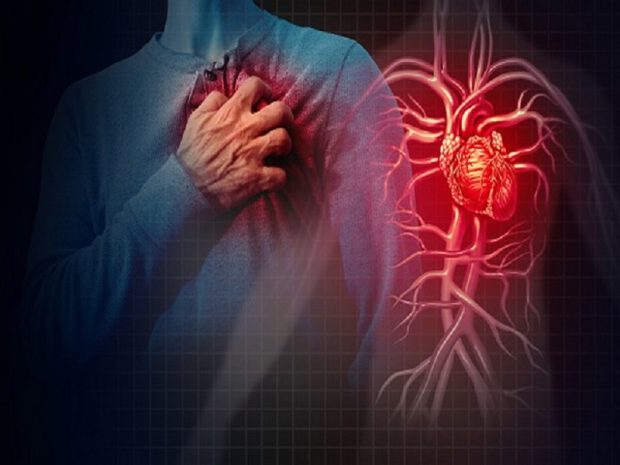
AI-derived digital marker to measure characteristics of heart disease in patients : Study
PTI, Dec 21, 2022, 12:14 PM IST

Representative Image (Source: ANI)
Washington DC: Scientists have constructed an in silico, or computer-derived, marker for coronary artery disease (CAD) to better measure clinically important characterizations of the disease, a new study has found.
Using machine learning and clinical data from electronic health records, the researchers at the Icahn School of Medicine at Mount Sinai in New York are the first ones to map characteristics of CAD on a spectrum. Previous studies have focused only on whether or not a patient has CAD, the study said.
CAD and other common conditions exist on a spectrum of disease; each individual’s mix of risk factors and disease processes determines where they fall on the spectrum. However, most such studies break this disease spectrum into rigid classes of case (patient has disease) or control (patient does not have disease). This may result in missed diagnoses, inappropriate management, and poorer clinical outcomes, said the investigators.
The findings, published in the journal The Lancet, are expected to lead to more targeted diagnosis and better disease management of CAD, the most common type of heart disease and a leading cause of death worldwide, the study said.
”The information gained from this non-invasive staging of disease could empower clinicians by more accurately assessing patient status and, therefore, inform the development of more targeted treatment plans,” said Ron Do, senior study author, Icahn School of Medicine.
”Our model delineates coronary artery disease patient populations on a disease spectrum; this could provide more insights into disease progression and how those affected will respond to treatment.
”Having the ability to reveal distinct gradations of disease risk, atherosclerosis, and survival, for example, which may otherwise be missed with a conventional binary framework, is critical,” said Do.
In the retrospective study, the researchers trained the machine learning model, named in silico score for coronary artery disease or ISCAD, to accurately measure CAD on a spectrum using more than 80,000 electronic health records from two large health system-based biobanks, the BioMe Biobank at the Mount Sinai Health System and the UK Biobank.
According to the study, the model, which the researchers termed a ”digital marker”, incorporated hundreds of different clinical features from the electronic health record, including vital signs, laboratory test results, medications, symptoms, and diagnoses, and compared it to both an existing clinical score for CAD, which uses only a small number of predetermined features, and a genetic score for CAD.
The 95,935 participants included participants of African, Hispanic/Latino, Asian, and European ethnicities, as well as a large share of women. Most clinical and machine learning studies on CAD have focused on white European ethnicity, the study said.
The investigators found that the probabilities from the model accurately tracked the degree of narrowing of coronary arteries (coronary stenosis), mortality, and complications such as heart attack, the study said.
”Machine learning models like this could also benefit the health care industry at large by designing clinical trials based on appropriate patient stratification. It may also lead to more efficient data-driven individualized therapeutic strategies,” said lead author Iain S. Forrest, Icahn Mount Sinai.
”Despite this progress, it is important to remember that physician and procedure-based diagnosis and management of coronary artery disease are not replaced by artificial intelligence, but rather potentially supported by ISCAD as another powerful tool in the clinician’s toolbox,” said Forrest.
Next, the investigators envision conducting a prospective large-scale study to further validate the clinical utility and actionability of ISCAD, including in other populations. They also plan to assess a more portable version of the model that can be used universally across health systems, the study said.
Udayavani is now on Telegram. Click here to join our channel and stay updated with the latest news.
Top News
Related Articles More

Why not detect sex of foetus, then protect girl child: IMA chief Asokan

Include 4 hrs of physical activity, 8 hrs sleep in routine for optimal health, suggests study

Traffic noise can increase risk of cardiovascular disease: Study

Nearsightedness is at epidemic levels – and the problem begins in childhood

Study finds genetic basis for link between depression, heart disease
MUST WATCH
Latest Additions

‘Shehzada’ dig: 3 generations of Nehru-Gandhi family sacrificed themselves for country, says Sharad Pawar

Rinku Singh a casualty of IPL’s ‘Impact Player’ rule: Report quotes BCCI source on T20 World Cup

Delhi cops question Youth Cong leader in MP’s Chhatarpur over fake video of Shah

Kumaraswamy and Shivakumar spar over sex scandal involving Hassan MP

Poor people have more children, why only Muslims are being targeted: Kharge asks PM

























